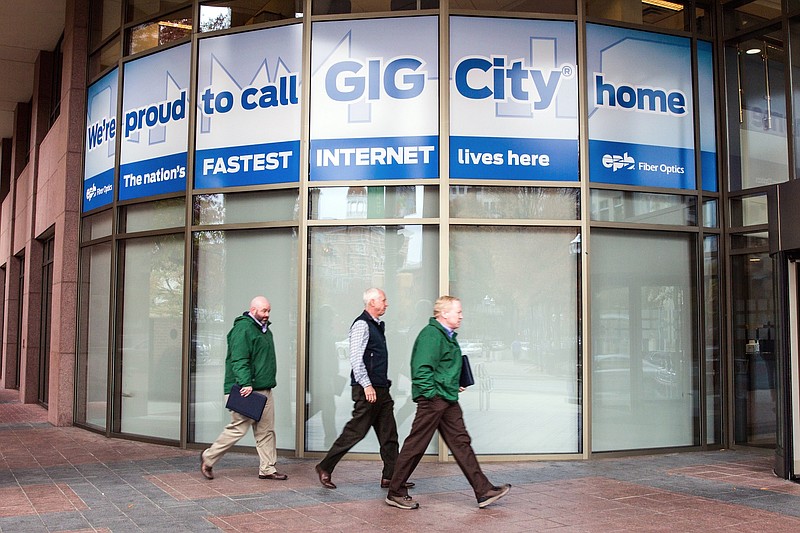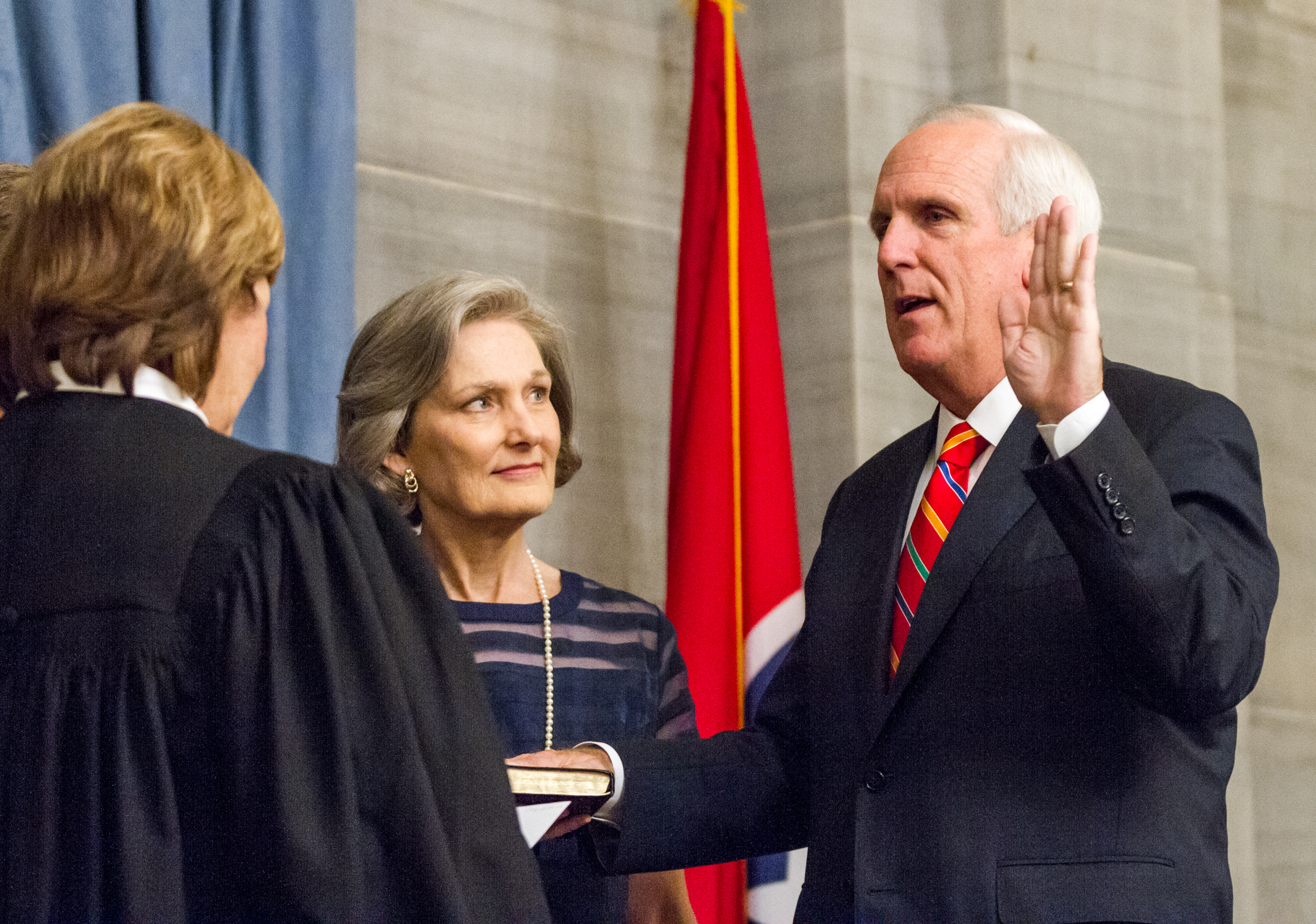We respect both state and federal authority on this issue, and are working at all levels to remove regulations that prevent more Tennesseans from gaining access to broadband."
Tennessee Attorney General Herbert Slatery is trying to overturn the historic decision federal regulators made last month allowing Chattanooga's EPB to offer high-speed Internet service beyond its footprint.
The state's chief attorney on Friday filed a lawsuit in the 6th U.S. Circuit Court of Appeals to essentially wipe out the Federal Communications Commission's final order for the case in which EPB and the city of Wilson, N.C., successfully sought to strike down state laws barring them from expanding their broadband offerings outside their service areas.
"This is a matter involving a claim of federal preemption by the FCC and Tennessee's right to determine the authority and market area of a political subdivision organized under Tennessee law," Slatery said in a statement.
Released Tuesday, the lawsuit is the first to have been filed against the FCC's Feb. 26 ruling.
The lawsuit, a petition for review, says the FCC "has unlawfully inserted itself between the State of Tennessee and the State's own political subdivisions," meaning its municipalities and counties.
The FCC's order "is contrary to the United States Constitution" as well as "in excess of the Commission's authority," the lawsuit says. It also claims the FCC ruling was "arbitrary, capricious, and an abuse of discretion within the meaning of the Administrative Procedure Act" and "is otherwise contrary to law."
The FCC said it was unshaken by the lawsuit.
"We are confident that our decision to pre-empt laws in two states that prevented community broadband providers from meeting the needs and demands of local consumers will withstand judicial scrutiny," an FCC spokesman said late Tuesday afternoon.
EPB officials didn't say if they were encouraged or discouraged by the lawsuit. Instead, the city-owned utility drove home the fact that it wants to expand service in whatever lawful way it can.
"Hundreds of thousands of Tennesseans face economic and educational disadvantages because they have little or no Internet access," said Harold DePriest, president and CEO of EPB. "We respect both state and federal authority on this issue, and are working at all levels to remove regulations that prevent more Tennesseans from gaining access to broadband."
State bills sponsored by Sen. Janice Bowling, R-Tullahoma, and Rep. Kevin Brooks, R-Cleveland, would allow municipally owned power distributors to extend their broadband if another public power distributor requests it. Bowling said the FCC decision is separate from her bill, although it could lead to a similar outcome.
"I really have no dog in that fight [between the state and the FCC]," she said Tuesday after learning of the attorney general's appeal.
A spokesman for Gov. Bill Haslam said "that's the attorney general's decision to make."
"As the governor has said in the past, he believes that encouraging investment in broadband is the right thing to do and that those decisions are best made at the state level," David Smith continued.
Chattanooga Mayor Andy Berke said Tuesday he was "disappointed" the state chose to intervene.
"We're trying to serve people without access to broadband service in our region, which we think will help our entire area to grow and prosper," Berke said. "That's our priority."
EPB launched its fiber-optic services in 2009, and they became more widely available in 2010. The utility has about 66,000 Internet customers. EPB now serves most of Hamilton County and parts of eight other counties in Tennessee and Georgia, and its officials have said it plans to expand only to areas where its service is requested.
Still, EPB's efforts have been opposed by AT&T, Comcast and other investor-owned telecommunications companies, which argue it is unfair to allow government entities to compete with free enterprise.
AT&T has said it's not opposed to municipal broadband networks -- but that those networks should only be in places where private-sector broadband service isn't available and isn't likely to be available in the near future.
Reacting Tuesday to the news of the lawsuit, AT&T spokesman Daniel Hayes reiterated a company statement saying that government money shouldn't be used to compete with the private sector, "which has a proven history of funding, building, operating and upgrading broadband networks."
"Policies that discourage private-sector investment put at risk the world-class broadband infrastructure American consumers deserve and enjoy today," he said.
William Haines' company America Internet was one of the first to provide Internet service in Chattanooga. In 2013, he left the area, forced out by EPB's dominance, he said, and now provides wireless service to nearby rural areas.
The FCC's ruling should be overturned, he said Tuesday.
"EPB needs to stay in their service area and not impose on other utilities and companies that are outside their area," Haines said.
The Beacon Center in Nashville, a free-market, nonprofit organization that advocates for limited government, also applauded the appeal.
"The FCC wildly overstepped its boundaries by getting involved in a purely state issue," said CEO Justin Owen. "Even those who believe the government should be competing against the private sector by providing Internet services surely can agree that this is a decision our state lawmakers are elected to make. General Slatery is right that the FCC needs to mind its own business, and we hope the federal courts will agree."
Staff writer Dave Flessner contributed to this story.
Contact staff writer Mitra Malek at mmalek@timesfreepress.com or 423-757-6406. Follow her on Twitter @MitraMalek.
Contact staff writer Andy Sher at asher@timesfreepress.com or 615-255-0550.

